On Saturday evening, what appeared to be a New York Times op-ed piece by Bill Keller supporting WikiLeaks emerged on twitter. For WL supporters, this was too good to be true, as someone who had shown much animosity toward WikiLeaks appeared to be speaking in their defense. This turned out to be a well crafted hoax. The stunning prank was believed by almost everyone as the only difference was the URL. The article borrowed words from Keller's emails and mimicked New York Times' home page. It fooled journalists and embarrassingly even the Time's tech writer Nick Bilton. It was surreal, as Keller, someone who had come to represent a 'journalism' that bends over for the US government, now appeared to stand behind WikiLeaks. This lasted for hours before it was finally debunked. Later in the day, WikiLeaks released a sequence of tweets that admitted they were involved in the production of this fake Bill Keller op-ed.

"If a tree falls in a forest and no one is around to hear it, does it make a sound?" This familiar philosophical question came to my mind in response to a friend's challenge of my support for WikiLeaks and call for investigation into the recent shooting of a black teen in Florida. She said, "How do you know what the truth is? How do you know that George Zimmerman didn't act in self-defense? How do you know that Julian Assange didn't sexually assault women in Scandinavia? ... Unless you get on an airplane, go the scene of the action, and see for yourself, you can't be absolutely certain. You can check and crosscheck multiple different sources and you can draw reasonable inferences, but you still have to inject a certain amount of faith unless you conduct your own personal investigation".
It is true. We were not there at the moment of Trayvon Martin's death. Someone pulled the trigger and as a result the young man was dead. At the moment of his death, the neighbor's 911 call recorded someone crying for help. Someone was being threatened. Was it Zimmerman or Martin? We don't know if this was a murder or an act of self defense by Zimmerman. When the tree fell down, we were not in the woods to hear it.
Later I contemplated my friend's perspective and realized how it represents a psychological condition prevalent in American society. It is a kind of social disease, which perhaps explains the public silence around many problems in the world. This is a kind of belief system that says; I wasn't there. I don't know the truth, so I withhold judgment and remain aloof.
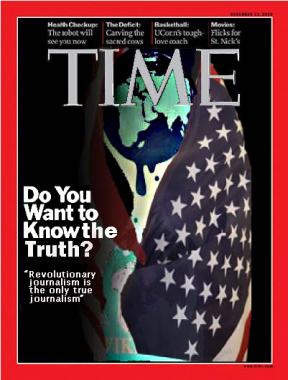
WikiLeak's rise to prominence as the world's first stateless media organization has carried it into the center of a massive storm of controversy. On one hand WikiLeaks and Julian Assange have widespread global support and have won numerous journalism awards. On the other hand, the US government portrayed them as a criminal entity, as a sort of spy organization and certainly not a member of the press protected by the First Amendment. Some top US officials called Assange a high-tech terrorist and should be prosecuted under the Espionage Act of 1917.
With inflamed rhetoric, many in the mainstream media have negatively framed the narrative of this new journalistic force and tried to distance themselves from it. By doing so, they attempted to deflect perception of WikiLeaks from the appearance of legitimacy associated with the word 'journalism'. One tactic was sensational personal attacks, with classic tabloid character assassination of Assange to distract the public from asking questions about the real actions of WikiLeaks. The other was sophisticated intellectual persuasion, where the corporate media criticized the organization, particularly questioning its journalistic status.
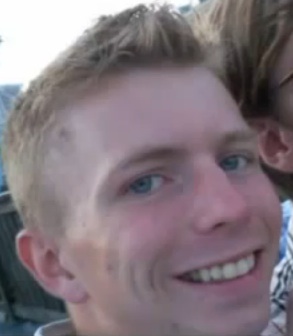 A student at the Medill School of Journalism at Northwestern University in Chicago was gracious enough to invite me to speak on a panel on Bradley Manning, the alleged whistleblower to WikiLeaks, which he had to put together for his “Media, Ethics and the Law” class. I participated in the panel this morning.
A student at the Medill School of Journalism at Northwestern University in Chicago was gracious enough to invite me to speak on a panel on Bradley Manning, the alleged whistleblower to WikiLeaks, which he had to put together for his “Media, Ethics and the Law” class. I participated in the panel this morning.
In addition to myself, the student informed me Timothy McNulty, a foreign editor for the Chicago Tribune who covered the Iraq invasion and the Afghanistan War, and Paul Rosenzweig, Carnegie Visiting Fellow and former Department of Homeland Security official, would be participating. A couple of student journalists would speak during the panel as well.
McNulty and Rosenzweig were both present in the classroom where the panel was held. I was in The Nation Magazine office in Manhattan, New York.
The student who organized the panel had me call in and put me on speakerphone. I was able to listen to what McNulty and Rosenzweig were saying.
Rosenzweig began the panel saying with assurance there isn’t any doubt the material WikiLeaks has released has caused risks. He said lists have been created of people who were listed in the documents—lists featuring the names of informants—and the Taliban has been hunting these people down.
Rosenzweig cited a Zimbabwe opposition leader who many believe to be endangered as another example of the risks WikiLeaks’ releases have created. He said there are good laws on secrecy, files released contained information on whereabouts of Osama bin Laden, and he has no problem with Manning being prosecuted.
McNulty agreed. And I was greatly disturbed by the falsehoods that McNulty let stand and made certain that I was able to comment.
Tim Hetherington was a photojournalist and Oscar-nominated documentary filmmaker who was killed, along with his equally acclaimed colleague Chris Hondros, on Wednesday, 20 April, as they worked to cover a group of rebels opposed to the Gadhafi regime in Misrata, Libya.
In January 2009, Hetherington talked with his colleague James Brabazon at the Frontline Club in London about their work in West Africa. The discussion is a seminar on how interconnected politics are among former colonies artificially constructed as separate nations. Listen especially at about 1.11, when Hetherington talks about the problem of Western reporters dropping in to grab topical stories without grasping the historical and cultural context.
Many are dying in Libya and elsewhere because of the international crime of aggressive war, and most of those who die will not be memorialized in the international media, including the blogosphere. It still matters to recognize the value of every individual life. Tim Hetherington and Chris Hondros knew better than most how many human beings are being slaughtered and ignored as if nameless, as if they didn't matter, and they worked precisely to reinscribe that truth: we all matter. All honour to them.
And on Chris Hondros, from the Editor and Publisher article:
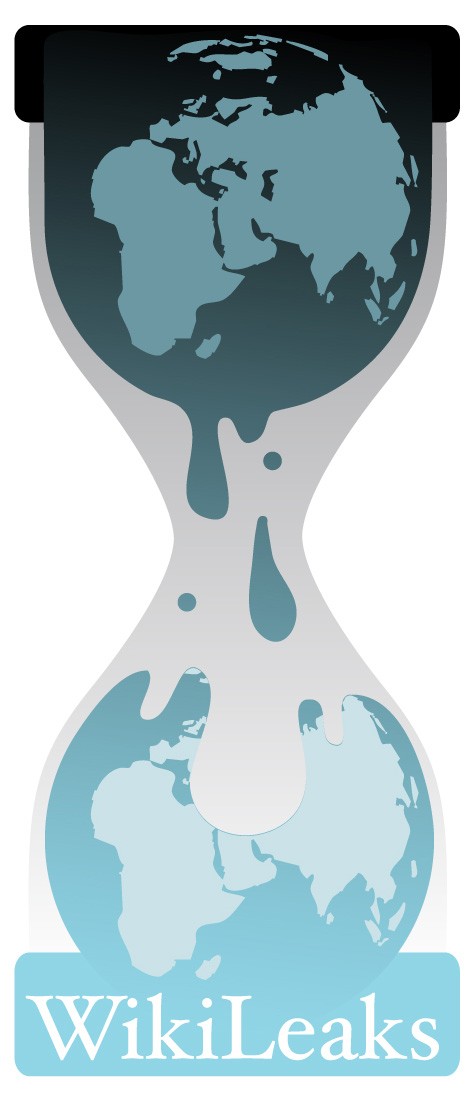 Bradley Manning moving to Fort Leavenworth
Bradley Manning moving to Fort Leavenworth
'US officials' say private Bradley Manning is being moved to Fort Leavenworth in Kansas according to the Associated Press. An announcement is expected tomorrow at the Pentagon. "The officials spoke on condition of anonymity because the move has not yet been made public."
Fort Leavenworth is home to the United States Disciplinary Barracks, the U.S. military's only maximum-security facility, which houses male service members convicted at court-martial for violations of the Uniform Code of Military Justice. According to Wikipedia, only enlisted prisoners with sentences over five years, commissioned officers, and prisoners convicted of offenses related to national security are confined to the USDB. Manning is still awaiting trial. Midwest Joint Regional Correctional Facility, opened October 5, 2010, is also on the Fort Leavenworth site and may be the one Manning is headed to.
Press briefing at the Pentagon contained the following:
UPDATE: Soldier sentenced for murder: "I lost my moral compass."
UPDATE 2: Rolling Stone, "The Kill Team"
Updates on the turn
“We apologize for the distress these photos cause”
On Sunday, the German weekly Der Spiegel published three photos -- from a reported trove of 4,000 videos and photos -- taken by members of a US army unit operating in Kandahar province last year. Two of the photos show soldiers in the unit lifting the body of an Afghan civilian by the hair and posing thus for the camera; the third shows two Afghans apparently or possibly killed while handcuffed together back to back. The photographs are not yet available onsite at Der Spiegel; David Dayen at firedoglake links to them here, here, and here.
As the Washington Post reported Sunday night, the identities of Gul Mudin, an unarmed Afghan civilian killed by the 5th Stryker Brigade unit, and the two soldiers photographed treating his body as a trophy have been known for some time. Twelve soldiers from the unit are currently being prosecuted in the deaths of three unarmed Afghan civilians last year; two are charged with murder and could face life imprisonment or the death penalty if convicted. The Post follows up with the best analysis so far of the impact these photos might have on those cases.
It is news, however, that the unit would have collected such a store of photographic evidence of their activities -- the Post, following suppressed military court evidence in the US, refers to "several hundred," but the Guardian, citing Der Spiegel, refers to 4,000.
The most telling news of all, however, is the official reaction of the US military to the publication of these three photographs.
Submitted by Bella Magnani
Oh dear, Nick Davies, what went wrong?
Back in 2008 you wrote a book called Flat Earth News, a meticulously researched and scathing analysis of journalistic corruption and murky practices in British newspapers. You told us: “the modern newsroom is a place of bungs and bribes, whose occupants forage illicitly for scoops in databases and dustbins. Newspapers hold others to account while hushing up their own unsavoury methods. Self-regulation does not always offer fair (or any) redress to citizens who have had lies written about them. Stories are often pompous, biased or plain wrong. Some close scrutiny is not only legitimate: it is overdue.” Ed: The quote in this paragraph is quoting a review of Nick Davies book printed in the Guardian (see link), not Nick Davies book as is erroneously implied.
Ugh! Sounds nasty. So glad you took the moral high ground there and called so passionately for journalistic standards to be above reproach, lest readers end up “soaked in disinformation”. Warming to your theme, in another Guardian article - Our media have become mass producers of distortion - you let rip:
“Where once journalists were active gatherers of news, now they have gene rally become mere passive processors of unchecked, second-hand material, much of it contrived by PR to serve some political or commercial interest. Not journalists, but churnalists. An industry whose primary task is to filter out falsehood has become so vulnerable to manipulation that it is now involved in the mass production of falsehood, distortion and propaganda.”
WL Central published an article two days ago, outlining the extraordinarily heavy handed redaction by the Guardian of a Bulgarian cable. Wikileaks tweeted the article, saying it was "Another very serious example of the Guardian "cable cooking" in violation of WikiLeaks agreements". Guardian investigations editor David Leigh responded with "@wikileaks Another stupid lie from #Assange alleging 'cable censorship' by #Guardian, (stuck with UK libel laws as he knows). What a liar!"
Wikileaks did not however, accuse the Guardian of cable censorship, they accused them of "cable cooking". A closer inspection of what happened in this one instance of cable redaction by the Guardian indicates that the Wikileaks description was closer to the mark. In fact, an examination of this document brings a feeling that the world will be in for Cablegate 2.0 when we finally get to see these cables without Guardian redaction.
The redaction on this particular cable is best shown here. The parts redacted by the Guardian are in green.

В края на декември 2010 г. сайтът Wikileaks даде начало на скандала Cablegate: публикацията на 251 287 секретни американски дипломатически телеграми. До този момент в сайта са публикувани 5000 телеграми или около 2% от цялата база. Осем от публикуваните до момента телеграми са от американското посолство в София.
Общо в базата данни на Wikileaks има 978 дипломатически телеграми от посолството на САЩ в София. В още 66 грами от други посолства се среща етикетът Bulgaria.
На 1 декември 2010 г. Гардиън публикува в сайта си дипломатическа телеграма на американското посолство в София за организираната престъпност в България.
На 7 декември 2010 Монд публикува обзорен материал за влиянието на руската мафия в Европа, в който също се цитира грамата, подписана от посланик Джеймс Пардю.
От статията в Монд научаваме също, че има и друга телеграма датирана от 11 септември 2009 г., която също е посветена на българската организирана престъпност. В нея има раздел "Руска връзка", където се коментира представителят на Майкъл Чорни в България – адвокатът Тодор Батков. Посолството подчертава неговите солидни политически връзки и факта, че през 2008 г. е награден от президента Георги Първанов с най-високото държавно отличие орден „Стара планина”.
Десет дни след публикацията в Монд, на 17 декември 2010 в сайта на Wikileaks беше публикуван цензурираният от Гардиън текст на дипломатическата телеграма от 7 юли 2005, подписана от посланик Джеймс Пардю.
Текстът на телеграмата от септември 2009 така и не видя бял свят и до този момент единствено журналистите от изданията акредитирани от Wikileaks са запознати с него.

Bulgarian translation here.
As described in an article on WL Central yesterday, 2011-03-17 Unredacted cable from Sofia shows the total invasion of the state by organized crime, a cable which had 3/4 of its text redacted by the Guardian has now been published in full. This WL Central writer is also a member of the web site Bivol which published the unredacted cable.
Why did The Guardian and Le Monde Conceal Information about Crime in Bulgaria?
The stated policy of Wikileaks is to not publish the original texts of the cables, but rather censored versions, edited by the teams of their partner media, after the latter have examined the content of the documents. This way media, known for their professionalism and good reputation, offer a guarantee the names of informers and third parties and their identities would not be revealed.
Wikileaks have chosen this model in order to not endanger the lives of intelligence agents and informers as it happened after the publication of documents about the US and its allies’ military operation in Afghanistan. At the time, even staunch supporters of freedom of speech, such as “Reporters without Borders,” voiced strong and grounded criticism of Julian Assange.
One cannot help it, but note that in the published cable from July 7, 2005, the section “Who Is Who in Bulgarian Organized Crime” abounds with censored paragraphs. We can only guess the reason of the Guardian journalists to conceal individuals and businesses the Embassy believes are part of organized crime. The names of these individuals and businesses, along with information about alleged ties with organized crime, are nothing new for the Bulgarian and international audience.
The New York Times has received second-hand reports that 4 of its journalists have been "swept up by Libyan government forces" from Ajdabiya. The reports remain unconfirmed, however. The missing journalists are photographers Tyler Hicks and Lynsey Addario, reporter and videographer Stephen Farrell and Anthony Shadid, Beirut bureau chief and Pulitzer Prize winner.
The last contact received from the journalists was on Tuesday morning (ET).
As Jeremy Peters highlights in his Mediadecoder blog entry,
The Times, like many news organizations, has procedures in place to carefully track its journalists’ whereabouts in war zones and areas of conflict. Susan Chira, foreign editor of The Times, said that each night editors discuss plans for the following day with their correspondents, who are expected to check in regularly.
“We expect to hear from them several times a day — and so do their colleagues in the field, who are often our early warning system of any trouble,” Ms. Chira said.
Executive editor Bill Keller said in a statement,
MADRID - Today the auditorium of the Reina Sofia museum in Madrid hosted a debate between the chief editors of the five major newspapers involved in cablegate: Javier Moreno from El Pais, Alan Rudbridger from The Guardian, Sylvie Kauffmann from Le Monde, Georg Mascolo from Der Spiegel and Bill Keller representing The New York Times. The theme was the future of journalism in the new global context set by Wikileaks.
We live tweeted the event here.
There was plenty of expectation, and early on in Twitter trends users were wondering if we would see a true discussion and not an orchestrated charade. This was important as most of the audience was made up of young reporters and students on assignment from their Universities: if the debate was to be centered on the future of journalism and its new model then the way it was to be carried out had to be convincing for the future players present. It seemed, however, that the organizers had planned on trying to have a big impact on the future generations, as they lined up students of a journalism Master sponsored by El Pais behind the main participants, though it was still unclear if they would be allowed to join in the debate. As they went in, the viewers were given a piece of paper each, in which they were supposed to write down a question addressed to one of the five editors. It is a shame that even though the scene was perfectly set for an interesting and enriching discussion, full of young people ready to carry the torch when their time comes, it turned out to be sterile: no participation was allowed from and the master students were a little bit more than a stage prop.

Tal al-Mallouhi was arrested in Syria in December 2009, and yesterday, at 20 years old, was sentenced to five years in prison for spying, an action condemned by the Committee to Protect Journalists. She had written blog articles saying she wished to play a role in shaping the future of Syria, and asking US president Barack Obama to do more to support Palestine. She was charged with "revealing information that should remain hushed to a foreign country". An official told Al Jazeera she "deserved 15 years in prison but her sentence was commuted considering her age".
PJ Crowley, of the US state department, "sharply criticized" Syria's handling of this case. Obama recently interfered in a similar case in Yemen, that time demanding that a Yemeni journalist remain in prison for reporting the truth about a US attack in Yemen that killed 55 civilians.
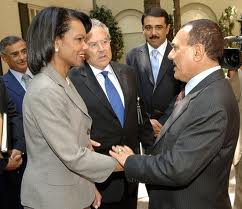 Protesters in south Yemen called for the secession of the once independent south today. Security forces were out early in the day with tanks and police to force protesters back inside. Scores of protesters were moved off of the streets of Aden, but dozens managed to get out in Crater, Khor Maksar, and Al-Mansura, and several hundred people in Zinjibar. Police in Al-Masura, fired warning shots and tear gas. Some reports say thousands of protesters were out in all provinces.
Protesters in south Yemen called for the secession of the once independent south today. Security forces were out early in the day with tanks and police to force protesters back inside. Scores of protesters were moved off of the streets of Aden, but dozens managed to get out in Crater, Khor Maksar, and Al-Mansura, and several hundred people in Zinjibar. Police in Al-Masura, fired warning shots and tear gas. Some reports say thousands of protesters were out in all provinces.
As WL Central reported on February 1, President Ali Abdullah Saleh had announced that he would step down after his second presidential term expires in 2013. Subsequent cables released by Wikileaks indicate that may have been more of a prearranged concession to the US than to the protesters. Cable 05SANAA1790 from June 2005 says regarding Saleh, "Domestically, however, he has run-out of reforms he can implement at no political cost to himself. Increasingly anxious about upcoming Presidential elections, and already preoccupied with succession, it is unlikely Saleh will allow a viable opposition candidate to challenge him in 2006. The visit is an opportunity to pressure Saleh not to amend the constitution so he may run again in 2013 by praising him for bringing Yemen to the point where he can rely on the system in place to produce a legitimate successor. The inducement here might be a public show of support via a greater role in public fora such as the G-8."
Abdul Ilah Shayi
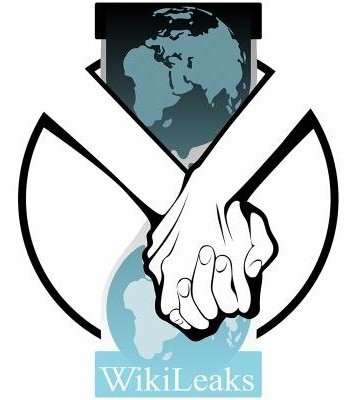 Julian Assange spoke today to a gathering in Melbourne organized by the WikiLeaks Defence Committee and the Australian Media, Entertainment and Arts Alliance, who presented Assange (via his lawyer) with his membership card in the union as a journalist.
Julian Assange spoke today to a gathering in Melbourne organized by the WikiLeaks Defence Committee and the Australian Media, Entertainment and Arts Alliance, who presented Assange (via his lawyer) with his membership card in the union as a journalist.
His filmed address, played to a free-speech forum at Federation Square in Melbourne, touched on a number of WikiLeaks' guiding principles as well as on immediate political pressures on the organization and on Assange himself. Repeatedly, he united those two concerns, principled and practical:
We at WikiLeaks recognize the difference between secrecy and privacy. ... We believe in transparent power, not in transparent people.
Via @Asher_Wolf and @joycelowenstein on Twitter, and Greg Mitchell at The Nation
A US court decision appears to draw a line between advocacy and journalism that could have dangerous consequences for other publishers and artists.
A federal appeals court has ruled that Joe Berlinger, a filmmaker who was ordered to hand over footage from his 2009 documentary “Crude” to the Chevron Corporation, cannot invoke a journalist’s privilege in refusing to do so because his work does not constitute an act of independent reporting. ...
In a decision issued on Thursday concerning Mr. Berlinger’s contention that he was protected as a journalist from being compelled to share his materials, the Second Circuit judges said they did not find the argument, which his lawyers presented to the court in July, to be persuasive.
“Given all the circumstances of the making of the film,” the judges wrote, “as reasonably found by the district court, particularly the fact that Berlinger’s making of the film was solicited by the plaintiffs in the Lago Agrio litigation for the purpose of telling their story, and that changes to the film were made at their instance, Berlinger failed to carry his burden of showing that he collected information for the purpose of independent reporting and commentary.”
Via @jeffjarvis on Twitter
Last night in London the Frontline Club presented its first "On the Media" event of 2011, hosted by the club's founder, Vaughan Smith. The topic was WikiLeaks and its relationship with and impact on conventional journalism.
The panel was chaired by Richard Gizbert, presenter of The Listening Post on Al Jazeera English. Panel members were:
Ian Katz, deputy editor of the Guardian
David Aaronovitch, author and columnist for the Times (London)
Gavin MacFadyen, director of the Centre for Investigative Journalism
Mark Stephens, media lawyer and attorney for Julian Assange
Video and text summary of the discussion
Reflections from Dominique Jackson of Babel @ Bedlam, who was present at the event.
Julian Assange's lawyer, Mark Stephens, delivered a 35-page skeleton outline of his court arguments to various media after the brief review hearing this morning at Belmarsh magistrates court (paraphrased in brief):
(1) It is not accepted that the Swedish prosecutor is authorised to issue European Arrest Warrants (EAW).
(2) European arrest warrants should only be issued for the purposes of prosecution, and it has been made very clear that Mr. Assange is wanted for further questioning.
(3) There has been abuse of process: non-disclosure by the Swedish Prosecutor.
(4) There has been a further abuse of process: the conduct of the prosecution in Sweden.
(5) The offences alleged in the EAW are not of serious nature in the UK, as they must be to constitute extradition offences.
(6) Mr Assange reserves the right to argue extraneous considerations.(section 13 of the Act).
(7) Mr. Assange reserves the right to argue that his extradition may be incompatible with Articles 3, 6, 8 and 10 of the European Commission on Human Rights.
www.aljazeerah.info looks at the drawbacks to mainstream media and provides a list of recommended alternative websites and writers. "Twenty years ago several journalists expressed concern that the number of major news sources in America had diminished to 50." according to the article. "Today, conglomerates have bought up most of those news sources; and the number of major news sources has been reduced to six! These six control all the news reported in America and much of what gets reported in the UK and Europe."
The recently revealed story of New York Times reporter David Rohde is an apparently justifiable example of press censorship.
On 22 June 2009, when news came that Rohde had escaped from his Taliban captors, few knew he had even been kidnapped, because for the seven months he and two Afghan colleagues were in the Taliban's hands, the New York Times kept that information under wraps.
Kelly McBride, who teaches ethics to journalists, says she was "really astounded" by the media blackout. "It makes me wonder what else 40 international news organizations have agreed not to tell the public."
Theme by Danetsoft and Danang Probo Sayekti inspired by Maksimer